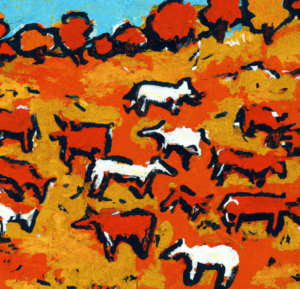
Decoding the Environmental Impact: Dairy Milk vs. Plant-Based Milk in the Indian Context
As we commemorate International Plant-Based Milk Day, it’s the opportune moment to spotlight the role of plant-based milks within the Indian dietary landscape, and their potential for mitigating the environmental burdens associated with traditional dairy production.
India holds the distinction of being the world’s foremost milk producer, a status that is deeply interwoven into the nation’s economic tapestry. Yet, the environmental costs tethered to dairy farming are far from negligible. To put this in perspective, the critical GHG emissions arising from livestock, primarily Carbon dioxide (CO2), Methane (CH4), and Nitrous Oxide (N2O), paint a concerning picture. CH4, in particular, contributes to 44% of anthropogenic GHG emissions, while livestock, on a global scale, contribute to 44% of anthropogenic CH4, 53% of anthropogenic N2O, and 5% of anthropogenic CO2 emissions (FAO)
In India, where dairy cattle form a significant part of livestock, these statistics translate to a substantial environmental footprint. Not only is Methane 25 times more potent as a greenhouse gas than CO2 over a hundred-year timespan (Intergovernmental Panel on Climate Change), but the ripple effects of climate change have begun to influence the quantity and quality of animal feeds.
An uptick in CO2 concentration results in herbage growth alterations that can impact livestock’s feed quality. Increased temperatures and dry conditions due to climate change can also cause variations in feed crops and forages, particularly in the concentrations of water-soluble carbohydrates and nitrogen, thereby affecting the nutritional intake of the livestock (Intergovernmental Panel on Climate Change).
A major driver of livestock-related GHG emissions comes from the process of feed production. Manure and synthetic fertilizers used in feed crop production, the processing of feed, and its transportation make up a staggering 45% of global livestock anthropogenic GHG emissions, largely consisting of CO2, N2O, and NH3 (Food and Agriculture Organization).
Consider the case of India, where nearly half of the world’s habitable land is used for agriculture, and a significant portion of this for livestock production. Despite occupying a major share of agricultural land, livestock produces only 18% of the world’s calories and 37% of total protein (Our World in Data).
Beyond the GHG emissions, the livestock sector in India also impacts biodiversity. The country has lost 12% of its wild mammals, 19% amphibians, and 3% birds over the last five decades due to livestock grazing in forest areas (International Union for Conservation of Nature).
Moreover, water utilization in livestock farming is substantial, with agriculture accounting for 60-75% of water use globally and meat alone occupying over 50% of the agricultural water footprint (Water Footprint Network).
The aforementioned evidence underscores the fact that while India’s dairy industry remains a pivotal component of the nation’s culture and economy, its environmental implications need urgent attention and strategic measures for sustainable management.
So, could plant-based milks offer a more sustainable alternative in this context?
According to Poore and Nemecek’s (2018) comprehensive study published in “Science”, producing a liter of soy milk emits only a third of the GHGs, uses 8 times less land, and consumes half the water as compared to cow’s milk (Poore & Nemecek, 2018).
In the Indian context, using locally available and culturally embraced sources for plant-based milks, like coconuts or rice, may drive their environmental benefits even higher.
But the shift to plant-based milks is not without challenges. A balanced approach might involve government support to help dairy farmers transition towards plant-based milk production, thereby diversifying their income streams. Indian startups like Goodmylk and Sain World are already spearheading the change.
Public awareness campaigns highlighting the environmental and health benefits of plant-based milks can drive this change at the consumer level.
Observing International Plant-Based Milk Day, we must contemplate the role our dietary choices play in sustainability. Shifting towards plant-based milks could be a significant step in mitigating our environmental impact. As we embark on this journey, ensuring it is both sustainable and equitable, considering the socio-economic realities of our dairy sector, is crucial.





